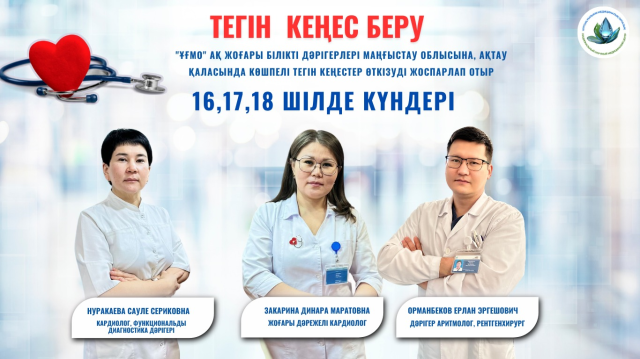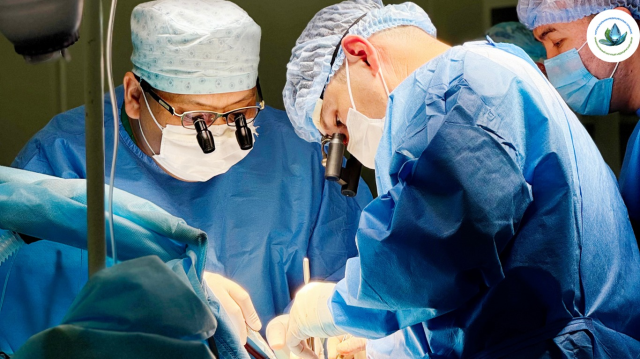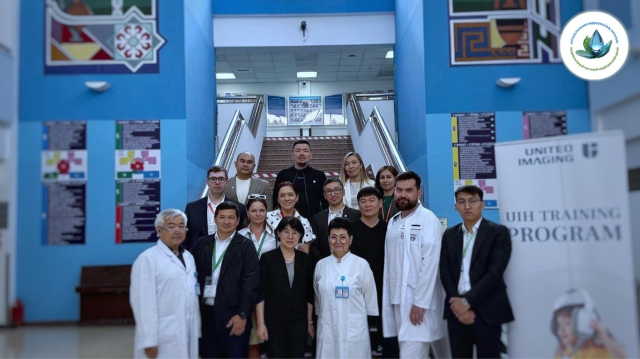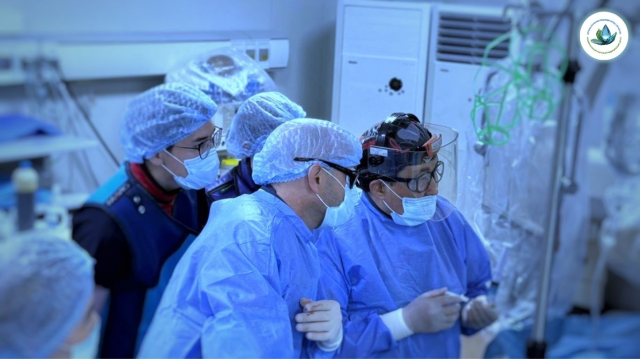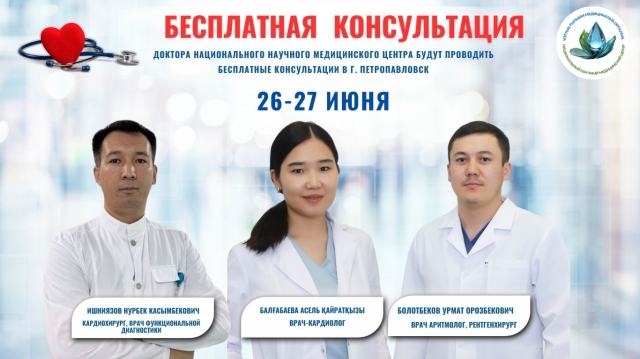- Formed in 2001.
- It is located in a separate building on the territory of the hospital complex.
- Permission of the regime commission to work with infectious material of group III-IV pathogenicity No. KZ08VMY00003039 dated 04/26/2022.
- The laboratory's activities are carried out in clinical, scientific and educational areas.
- The laboratory includes the following departments: bacteriological and serological diagnostics.
IN-LABORATORY QUALITY CONTROL
Escherichia coli ATCC 25922
Pseudomonas aeruginosa ATCC 27853
Staphylococcus aureus ATCC 29213
Enterococcus faecalis ATCC 29212
EXTERNAL QUALITY ASSESSMENT
2015-2022 – The program of interlaboratory comparative tests in the section "Clinical Microbiology" of the ASSN of the Center for External Quality Control of Clinical Laboratory Research, Moscow
2018-2022 – UK NEQAS (United Kingdom)
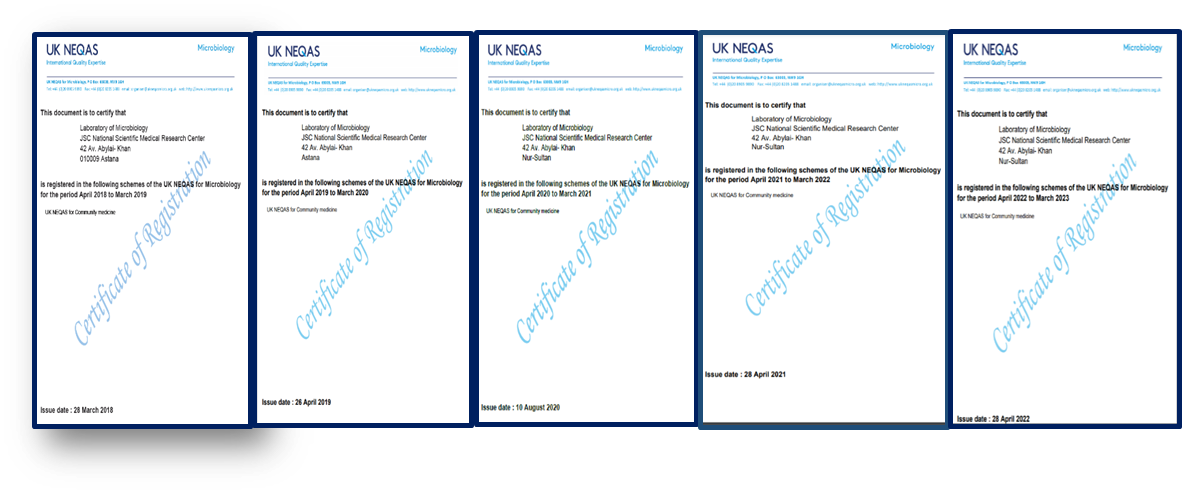
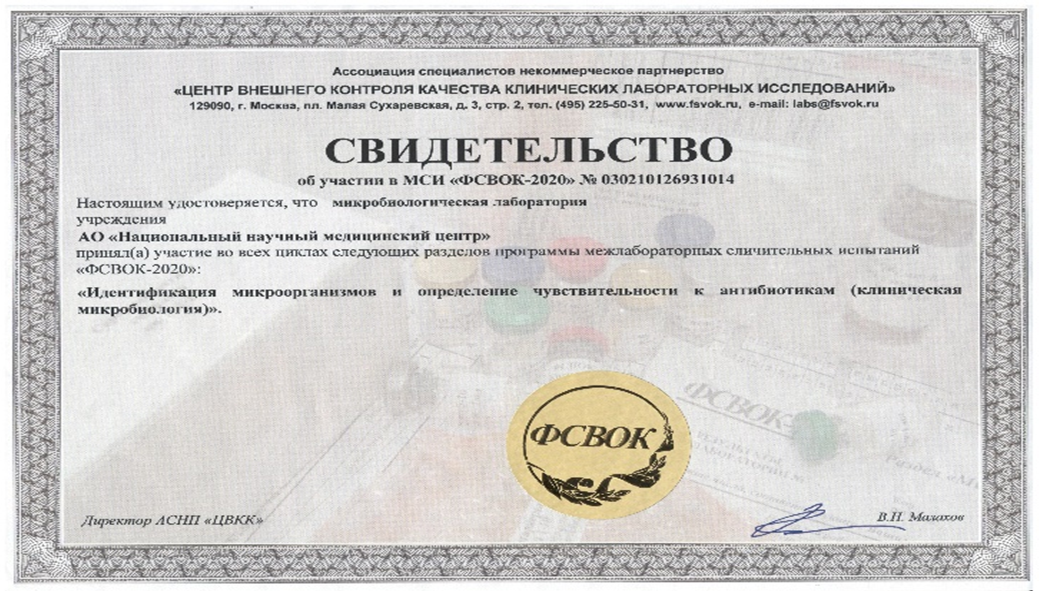
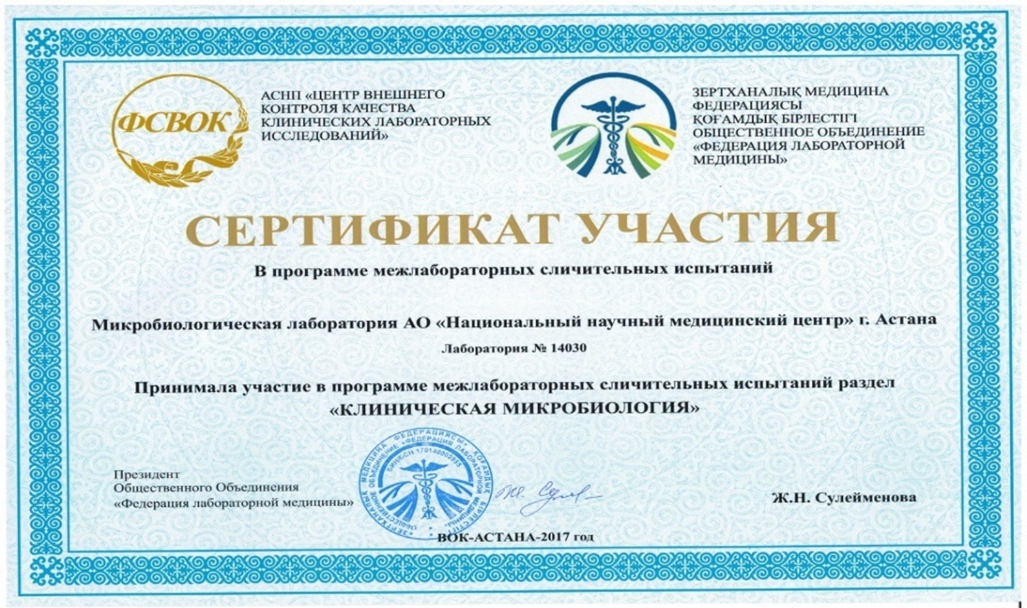
INTRODUCTION OF INNOVATIVE DIAGNOSTIC METHODS
The microbiological laboratory has implemented the WHONET (WHO) computer analytical program to monitor the microbial landscape and AMP resistance
He is a participant in the project "Antimicrobial Resistance Surveillance Network in Central Asia and Eastern Europe" CAESAR and the European Antimicrobial Resistance Surveillance Network (EARS-Net), organized by ECDC.
The determination and interpretation of the results of antibiotic sensitivity is carried out according to the recommendations of EUCAST - the European Committee for the Determination of Sensitivity to AMP
He is a participant in the multicenter study "Assessment of the sensitivity of clinical isolates to cetazidim/avibactam in Russia. CAZAVI-3" (Smolensk, 2021)
THE MICROBIOLOGICAL LABORATORY PROVIDES:
- diagnostic microbiological analyses of GOBMP
- laboratory support for hospital-based infection control
- diagnostic microbiological analyses under contracts
- examination of clinic staff (medical examinations)
The list of services provided by the microbiological laboratory
Mail:
microb_nnmc@mail.ru
Working hours:
On weekdays: 08:00 - 17:00 hours
Saturday: 08:00 - 14:00 hours
Day off: Sunday
Taking tests:
On weekdays: from 8:00 to 16:00
Saturday: 08:00 - 13:00
Contacts
Whatsapp: +7 (702) 094-77-73
Head: +7 (7172) 57-43-72

